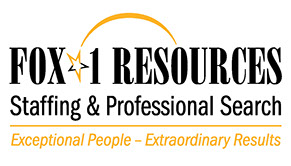Your Career 2.0
Make a smooth transition back into the world of work
Going back to work?
You're in good company. According to a recent MetLife Foundation/Civic Ventures survey, somewhere between 5.3 and 8.4 million people aged 44 to 70 have made the transition back to work by launching "encore careers."
But being in good company doesn't necessarily make things any easier for you. Whatever the reason for your employment gap--layoff, having children, going back to school, disability, early retirement--one thing is certain: re-entering the workplace after a prolonged absence can be a little scary. Self-doubt, anxiety over your ability to even find a job, and concerns about how you'll fit in can make you want to give up before you even get started.
So if you're headed back to work, prepare yourself for a great career comeback with these tips:
Critically examine today's marketplace. As a returning worker, you must understand what industries are hiring for what types of positions. So start your comeback with online research, or by reading industry publications to determine the hottest careers. From there, conduct a self-assessment to determine the skills you possess (and those you'll need to acquire) that are marketable to those opportunities.
Create a functional résumé. Unlike a chronological résumé, which focuses on each job you held, a functional résumé highlights your skills. It emphasizes your abilities and accomplishments, without providing detailed background information on where and when you acquired these skills. Although the functional résumé does include a work history section, you can easily explain your employment gap in your cover letter.
Address your work gap head-on. Remember, your employment gap does not define you--your skills, qualifications and experience are what truly make you the right candidate for the job. Use your cover letter to make a succinct, positive, unapologetic statement about what you were doing during your time off work. Then move on to discussing your skills, including those you acquired while away from the workforce.
Volunteer. Many employers view volunteer work as relevant job experience. So if you have the time while you're looking for work, devote free hours to support a favorite cause. Volunteering not only benefits others--it also allows you to make valuable contacts and bolster your résumé.
Network. This may seem obvious, but not everyone does it. Get in touch with everyone you can--former co-workers, family members, friends, social networking contacts and other professional associates--and let them know you are looking for a job. Keep both digital and paper copies of your résumé handy wherever you go.
Consider a "returnship." Designed for experienced professionals who want to re-enter the workforce, a returnship offers the same benefits to both employer and candidate as a traditional internship. You can get your foot in the door with a potential employer and see where you might fit in, while the employer gets free access to your talent and expertise. So if you have your sights set on a particular company that doesn't currently have a returnship program, take the initiative--develop a proposition to create one.
Set up informational interviews. An informational interview is conducted to collect information about a job, career field, industry or company. This invaluable networking tool affords you a low-stress opportunity to: build your self-confidence; get answers to questions that would not be asked in a traditional interview (e.g. salary, benefits, etc.); gain valuable career and company information; establish key networking contacts.
Stay positive and confident. You alone set the tone of your job search, so don't allow yourself to be defined by your absence from the workforce. Always focus on your skills, your experience and the position you want. Approach interviews with confidence and let potential employers know why you have what it takes to do the job.
Register with a staffing firm. Thankfully, you don't have to make a career comeback on your own. A staffing service can be a tremendous resource when you're re-entering the workforce. A staffing firm can:
– Get you back to work, effectively ending your employment gap
– Provide résumé assistance
– Afford you the flexibility to earn money while conducting your job search
– Help you improve your interviewing skills
– Enhance your job skills with free software training
– Gain access to a wealth of unadvertised employment opportunities
– Allow you to try out different employers and types of jobs, to see where you fit best
– Boost your self-confidence
To boot, staffing firms offer direct placement services with employer-paid recruiting fees. So if you haven't done so already, consider registering with a reputable staffing firm that specializes in your field of work.
Sources:
Returning to the Workforce After an Absence? CareerBuilder.com. Posted October 4, 2009.
Lorenz, Kate. Cover Letters Close Gaps in Employment. CareerBuilder.com.
McKay, Dawn Rosenberg. Returning to Work: A Career Crossroads. About.com Guide.
Zupek, Rachel. How to Make a Comeback in the Work Force. CareerBuilder.com.
651-894-3990 ph | 651-894-0016 fax | Contact Fox-1 Companies | 1618 Cliff Road E, Burnsville, MN 55337 | Copyright © 2013 Fox-1 Companies

